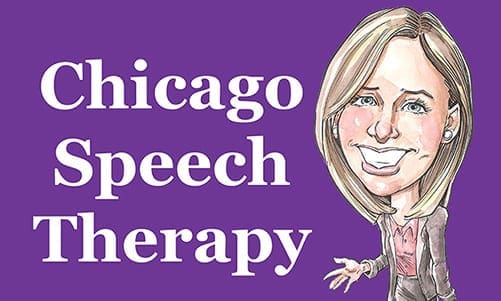Auditory processing disorder (ADP) is characterized by an inability in children to process the information they hear in the same way as others. Children who have ADP often cannot recognize the small differences between sounds in words no matter how clearly the word might be spoken. While this disorder affects roughly 5% of school-aged-children, the nature of ADP’s symptom mean …
¿Qué debo hacer si mi hijo tiene apraxia? por Chicago Speech Therapy, LLC
Childhood apraxia of speech (CAS) is a neurological disorder characterized by the inability to carry out skilled or planned movements and gestures, specifically those movements having to do with speech production. Though doctors are uncertain what causes this disorder, they do know that while your child may have the intention to communicate, the desired message gets disrupted on its way …
Hitos del habla para determinar si su hijo se está desarrollando a tiempo por Chicago Speech Therapy
Do you wonder if your child’s speech is comparable to other children of the same age and background? Are you worried about your child’s ability to understand and communicate with you? Here is a quick list of milestones that you can use to gauge your child’s progress in his or her first five years: 0-5 Months Reacts to sounds; turns …
Terapia del habla en Chicago: ¿Sufre mi hijo un trastorno del lenguaje receptivo?
What is Receptive Language Disorder? Receptive Language Disorder affects the brain’s ability to understand either spoken or written language. It can be directly impact a child’s speech development if left unaddressed. Up to one out of every 20 children has symptoms of either a Receptive Language Disorder or the related Expressive Language Disorder, and between three and five percent are …
Sistema de Comunicación por Intercambio de Imágenes (PECS): ¿Cómo puede ayudar a mi hijo a comunicarse?
What is the Picture Exchange Communication System? The picture exchange communication system (PECS) is based upon pictures and focuses on helping children to communicate “wants.” Pictures of food or activities are drawn onto cards or photographed by the communication partner (parent or therapist) and presented in front of the child so that he or she can see them and point …
Terapia de lenguaje para abordar la alimentación selectiva frente a la alimentación problemática
Do you have a child who only eats certain things and refuses to try new foods? Does your child refuse to eat food altogether? If you answered yes to either of these questions, your child might be a picky eater or problem feeder. For proper physical, emotional, cognitive, and speech development, you need to ensure your child eats a balanced …
Ideas para la logopedia: Una guía para los padres para las actividades que pueden estimular el aprendizaje de su hijo
Children do not begin to master language until they are 5 to 6 years old but they begin learning words and their meanings earlier than that. Parents can do a lot to ensure the progressive development of language in their child. Studies have shown that a child’s ability to learn can increase 25% or more depending on whether she or …
Terapia del habla en Chicago: ¿Cuáles son los hitos comunes del desarrollo del habla?
It is very natural as a parent to be concerned about your child’s speech development, especially since children often experience various speech abnormalities as a course of learning language. How do you know if your child is developing normally? Is it typical for a child to be experiencing a certain speech “errors” beyond a certain age? It’s good to know …
¿Cómo ayuda la logopedia con el método PROMPT a tratar la apraxia?
What is PROMPT? PROMPT (Prompts for Restructuring Oral Muscular Phonetic Targets), is a system used to treat speech disorders. The PROMPT technique has many facets to support speech change and is mainly used to treat apraxia. This system takes into account all the different ways we use our bodies including: sensory, perception, cognition, ideation, planning and action. The unique factor …
Speech Therapy Tips: How to Stimulate Early Language Development in Children
Consult with a Speech Therapist Early language development in children does not happen overnight and can be a slow process, but with a proactive attitude, eager parents can do a lot to help their child along as he or she learns to speak. If you feel that your child has a speech or language difficulty or if he or she …
